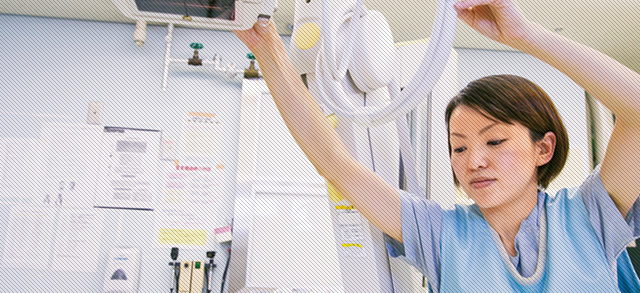Graduate School of Medicine
Staff Information

Yutaka Kawakami
MD, PhD
Graduate School of Medicine, Affiliation Campus: Narita
Profile (Career Summary)
Graduated from Keio University School of Medicine in 1980, trained as a general physician and hematologist at Keio University hospital, and worked at Dept. Immunology, University of South Florida (1985-87), Dept. Biology, California Institute of Technology (1989), and Surgery Branch, NCI, NIH (1987-97). In 1997, Professor, Division of Cellular Signaling, Institute for Advanced Medical Research, Keio University School of Medicine, Director of the Institute in 2005, Dean of Graduate School of Medicine Keio University in 2015. Since 2019, Dean, International University of Health and Welfare (IUHW) School of Medicine. President of Japanese Association of Cancer Immunology (JACI), Thomson ISI Highly Cited Researcher (2005), Kitasato Prize, Keio University School of Medicine (2006), Gijuku Prize, Keio University, Human Immunology Research Award, Japanese Society of Immunology (2018),
Specialized Field
Immunology, Oncology, Internal medicine
Message to Students
Immune system is involved in pathologic conditions of various diseases. Immune-status in patients with cancer is significantly correlated with response to various cancer treatment. Investigation on the patients (Responders vs non-responders) treated with immune-checkpoint inhibitors, and cross-sectional immunological analyses of various diseases, will lead to advance of human immunology and development of new diagnostic, therapeutic, and preventive methods. We really hope young investigators will participate in this exciting immunology research using various new advanced technologies towards clinical applications.
Research Theme
Understanding of immunological mechanisms of various human diseases including cancer and development of immunotherapies
We would like to understand immunological mechanisms for various human diseases including cancer, and develop new diagnostic, therapeutic and preventive methods. Our current research interests include the mechanisms of different immune-status in tumor microenvironments of various cancers, and their modulation for development of effective cancer immunotherapy (e.g. combination immunotherapy with immune-checkpoint inhibitors and gene engineered T cell therapy). We are attempting to solve many questions by both human and mouse model studies using various new advanced technologies.
References
- Tanoue T, Morita S, Plichta DR, et al, A defined consortium of human gut commensals induces CD8 T cells and modulates host microbial and cancer immunity. Nature, 565:600, 2019
- Pagès F, Mlecnik B, Marliot F, et al, International validation of the consensus Immunoscore for the classification of colon cancer: a prognostic and accuracy study. Lancet, 391:2128, 2018
- Yaguchi T, Kobayashi A, Inozume T, et al. Human PBMC transferred murine MHC class I/II deficient NOG mice enable long-term evaluation of human immune responses. Cell Mol Immunol. 14:1, 2017
- Kinoshita T, Muramatsu R, Fujita T, et al. Prognostic value of tumor-infiltrating lymphocytes differs depending on histological type and smoking habit in completely resected non-small-cell lung cancer. Ann Oncol. 27:2117, 2016
- Yaguchi T, Goto Y, Kido K, et al, Immune suppression and resistance mediated by constitutive activation of Wnt/β-catenin signaling in human melanoma cells. J Immunol, 189:2110,2012
- Iwata-Kajihara T, Sumimoto H, Kawamura N, et al. Enhanced Cancer Immunotherapy Using STAT3-Depleted Dendritic cells with High Th1-Inducing Ability and Resistance to Cancer Cell-Derived Inhibitory Factors. J Immunol. 187:27, 2011
- Ueda R, Ohkusu-Tsukada K, Fusaki N, et al. Identification of HLA-A2- and A24-restricted T-cell epitopes derived from SOX6 expressed in glioma stem cells for immunotherapy. Int J Cancer. 126:919,2010
- Kudo-Saito C, Shirako H, Takeuchi T, et al. Cancer metastasis is accelerated through immunosuppression during EMT of cancer cell. Cancer Cell, 16:195, 2009
- Asahi A, Nishimoto T, Okazaki Y, et al. Helicobacter pylori eradication shifts monocytes' Fcγ receptor balance toward inhibitory Fc γ RIIB in immune thrombocytopenic purpura. J Clin Invest. 118: 2939, 2008
- Sumimoto H, Imabayashi F, Iwata T, et al. The BRAF-MAPK signaling pathway is essential for cancer immune evasion in human melanoma cells. J Exp Med, 203:1651,2006
- Kuwana M, Matsuura E, Kobayashi K, et al. Binding of β2-glycoprotein I to anionic phospholipids facilitates processing and presentation of a cryptic epitope that activates pathogenic autoreactive T cells. Blood. 105:1552,2005
- Kuwana M, Okazaki Y, Yasuoka H, et al. Defective vasculogenesis in systemic sclerosis. Lancet. 364:603,2004
- Sumimoto H, Miyagishi M, Miyoshi H, et al. Inhibition of growth and invasive ability of melanoma by inactivation of mutated BRAF with lentivirus-mediated RNA interference. Oncogene. 23: 6031,2004
- Ishikawa T, Fujita T, Suzuki Y, et al. Tumor-specific Immunological Recognition of Frameshift-mutated Peptides in Colon Cancer with Microsatellite Instability. Cancer Res. 63:5564, 2003
- Toda M, Iizuka Y, Kawase T, et al. Immuno-Viral Therapy of Brain Tumors by Combination of Viral Therapy with Cancer Vaccination Using a Replication-Conditional HSV. Cancer Gene Ther.9:356, 2002
- Rosenberg SA, Yang J, Schwartzentruber D, et al. Immunologic and therapeutic evaluation of a synthetic peptide vaccine for the treatment of patients with metastatic melanoma. Nature Med, 4:321, 1998
- Parkhurst MR, Salgaller ML, Southwood S, et al. Improved induction of melanoma reactive CTL with peptides from the melanoma antigen gp100 modified at HLA-A*0201 binding residues. J Immunol. 157:2539,1996
- Robbins PF, El-Gamil M, Li YF, et al. A mutated b-catenin gene encodes a melanoma - specific antigen recognized by tumor infiltrating lymphocytes. J Exp Med. 183:1185, 1996.
- Kawakami Y, Eliyahu S, Delgado CH, et al. Identification of human melanoma antigen recognized by tumor infiltrating lymphocytes associated with in vivo tumor rejection. Proc Natl Acad Sci USA, 91:6458, 1994.
- Kawakami Y, Eliyahu S, Delgado CH, et al, Cloning of the gene coding for a shared human melanoma antigen recognized by autologous T cells infiltrating into tumor. Proc Natl Acad SciUSA, 91:3515, 1994
